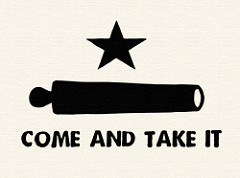English and Dutch Constitutionalism (whole topic) – Flashcards
Unlock all answers in this set
Unlock answersquestion
Puritans
answer
-members of a 16th and 17th century reform movement -within the Church of England that advocated purifying it of Roman Catholic elements -ex. bishops, wedding rings, elaborate ceremonies
question
James and Charles antagonize the Puritans
answer
James- "no bishop, not king", bishops were amonf the chief supporters of the throne Charles- antagonized religious sentiments (attitudes/opinions), married a Catholic princess, supported the heavy-handed policies of the Archbishop of Cantercury, William Laud
question
William Laud
answer
-in 1637 attempted to impose 2 new elements on church organization in Scotland -new payer book modeled on the Anglican "Book of Common Prayer" -bishoprics
question
Scotish Rebellion
answer
-Presbyterian Scots rejected Laud's elements and revolted -to finance an army to quell the Scots, King Charles was compelled to summon Parliament in November 1640
question
Charles is forced to call Parliament in 1640
answer
-financing his government through extraordinary stopgate levies from 1629 to 1640 -the king revived a medieval law requiring coastal districts to help pay the cost of ships for defense, but he levied the tax called "ship money" on inland countries too
question
Parliament's mistrust of Charles
answer
-most members of Parliament thought such taxation without consent amounted to despotism -they weren't willing to trust the king with an army -many supported the Scot's resistence to CHarles' religious innovations
question
The long Parliament
answer
-sat from 1640 to 1660 -enacted a legislation that limited the power of the monarch and made government without Parliament impossible
question
Buildup to the English Civil War
answer
{Triennial Act} -1641 -compelled the king to summon Parliament every 3 years {Impeachment of Laud} -the Commons impeached the archbishops and threated to abolish bishops
question
Charles' Response
answer
-feared of a Scottish invasion which was the only reason for summoning Parliament -reluctantly accepted these measures
question
Irish uprising
answer
-English governors and landlords had long exploited the people -in 1641 the Catholic gentry of Ireland led an uprising in response to feared invasion by anti-Catholic forces of British Long Parliament
question
Charles gathers an arny
answer
Where- left London for the north of England (countryside) How- drawn from nobility and its cavalry staff, the rural gentrym and mercenaries Why- Charles could neither come to terms with the Scots nor respond to the Irish rebellion
question
Constitutionalism
answer
limitation of government by law
question
Constitutional balance
answer
balance between the authority and power of the government one the one hand, and the rights and liberties of the sibjects or citizens on the other hand
question
US style constitutional government
answer
constitution embodied in one basic document and occasionally revised by amendment
question
English and Dutch style constitutional government
answer
constitution partly formalized and includes Parliamentary statutes, judicial decisions, and a body of traditional procedures and practices
question
Republicanism
answer
a form of government in which there is no monarch and the power rests in the hands of the people as exercised through elected representatives
question
English constitutional monarch
answer
-after decades of civil war and an experiment with Republicanism, English power opted for a consitutional monarchy in 1688 -retained a monarch as the head of government but vested sovreignty in an elected Parliament
question
Dutch republicanism
answer
-rejected monarchial rule after gaining independence from Spain -adopted a republican form of government in which elected states held supreme power
question
What did the English and Dutch represent to other Europeans?
answer
they were the shining examples of the restraint of arbitrary power and rule of law
question
James comes to the throne
answer
-1603 -Elizabeth's Scottish cousin -35 years of experience as king of Scotland -not interested in the common people
question
James I's view of monarchy
answer
-absolutist belief that a monarch has the divine right to rule -his authority and responsibility is only to God -sondiered such restraints on on authority intolerable and a threat to his divine right
question
English idea of monarchy
answer
-a person's property could not be taken away without due process of law
question
The New Model Army
answer
Parliament created this in response to Charles I that was composed of militia of the city of London and squires (low landed gentry) with business connections
question
The English Civil War (1642-1649)
answer
Pitted power of the king against that of Parliament
question
Battles of Naseby and Langport (1645)
answer
-New Model Army defeated king's armies -Charles refused defeated
question
Oliver Cromwell
answer
-Both sides jockeyed for position, waiting for decisive event -This arrived in the form of the army under leadership of Cromwell -Member of House of Commons and Puritan
question
The New Model Army under Cromwell's Command
answer
1647- Captured king and dismissed members of Parliament who opposed his actions "Rump Parliament" 1649- Remaining representatives who put Charles on trial for high treason January 30, 1649- Charles is found guilty and beheaded
question
Thomas Hobbes (1588-1679)
answer
-Philosopher -Held pessimistic view of human nature
question
View of Human Nature
answer
Believed humans, left to themselves, would compete violently for wealth and power (thought lowly of humans)
question
Leviathan (1651) -Social Contract
answer
All members in society placed themselves under absolute rule of a monarch, who would maintain peace and order
question
Leviathan-View of Society
answer
Imagined society as a human body in which monarch served as head and individual subjects made up the body. Like the body cannot sever its own head, believed society couldn't rise against king
question
Opinion of Cromwell's Actions
answer
-Longed for a benevolent monarch, but this was not shared by everyone in England -A commonwealth, or republic govt. was proclaimed instead
question
The Commonwealth
answer
-Republican govt. -Legislative power nested in surviving Parliament and executive power was lodged in a council of state
question
The Protectorate
answer
English military dictatorship (1653-1658) established by Cromwell following the execution of Charles I
question
The Instrument of Government (1653)
answer
-Army prepared constitution, invested executive power in a lord protector (Cromwell and council of state) -Provided triennial parliaments and gave Parliament the sole power to raise taxes
question
Cromwell's Marshal Law
answer
-After repeated disputes, Cromwell dismissed Parliament (1655) and the instrument was never fully endorsed -Continued standing army and proclaimed quasi-martial law -Divided England into 12 military districts, each governed by a major general -Forbade sports, kept theaters closed, and vigorously censored the press
question
Cromwell's Actions in Ireland
answer
-Cromwell long associated Catholicism in Ireland with sedition and heresy -Led an army to reconquer in 1649, and one month later forces crushed a rebellion and massacred the garrison
question
Legacy of his Actions
answer
-Atrocities worsened -English banned Catholicism in Ireland, executed priests, and confiscated land from Catholics for English -Brutal acts left legacy of Irish hatred to England
question
Cromwell's Mercantilist Policies- Navigation Act (1651)
answer
-Requiring that English goods be transported on English ships -Great boost to development of an English merchant marine
question
Cromwell's Mercantilist Policies- Jews
answer
Welcomed Jews because of their skills and began to return to England after 4 centuries of absence
question
Collapse of the Protectorate
answer
-Collapsed when Cromwell died in 1658 (ineffectual son succeeded him) -Fed up with military rule, English longer for a return to civilian govt, and with it, common laws and social stability -1660- Ready to restore monarchy
question
The Restoration of 1660
answer
Re-established the monarchy in the person of Charles II, the eldest son of Charles I. Both Parliamentary houses were restored, so was the Anglican Church courts of law, and system of local govt. through justices of the peace.
question
Issues with the Restoration of 1660
answer
-negative attitudes of the state towards Puritans, Catholics, and dissenters -questionable relationship between king and Parliament
question
Test Act of 1673
answer
-This law made it so that all officeholders had to take Communion in the Church of England. It prevented Catholics from holding office or being in the army or navy or attending universities -Was not well enforced
question
Charles II's Agreement with Louis XIV
answer
-get money from Louis in exchange for an ease on punishments for Catholicism -details leaked which lead to anti-Catholic sentiment
question
James II's Return to Catholicism: Violation of the Test Act
answer
-appointed Roman Catholics to army, universities, and government (Broke Test Act, that naughty boy)
question
James II's Revival of Absolutism
answer
-granted religious freedom -was able to suspend the law at his will
question
William of Orange Takes the Throne of England
answer
-James II was threatened with death by beheading so he fled (it's good to see that he had a good head on his shoulders ;) -Parliament and Church of England offered throne to William of Orange
question
The Glorious Revolution

answer
1688: When King James II lost his alias and Parliament invited his daughter Mary and her husband William of Orange to assume the throne. It changed the power and strategy of colonies expanding in the New World. The scheme for colonial unification was abandoned and the representative assemblies were revived.
question
End of the Divine Right of Kings
answer
-supremacy of Parliament recognized
question
Bill of Rights (English Edition)
answer
Role of Parliament: law made in Parliament Military: no standing army in peace Regulation of Catholicism: Catholics could not posses arms
question
John Locke
answer
17th century English philosopher who opposed the Divine Right of Kings and who asserted that people have a natural right to life, liberty, and property.
question
Second Treatise of Civil Government
answer
Locke asserted that, applying reason to politics, one can prove the inalienability of three rights of a person: life, liberty, and property. Locke believed like Hobbes that there must be a sovereign power, but he argued that it has no power over these 3 natural rights without their consent. and this consent must come from a representative assembly of men of property such as Parliament. He also asserted that rebellion is a right when people are living under a tyranny.
question
The Cabinet System

answer
-leading ministers decide policy -it took more power from monarchs
question
Robert Walpole
answer
-led Cabinet from 1721-1742 -developed idea that the Cabinet responsible to House of Commons
question
David Hume
answer
-philosopher who believed things are more peaceful under an absolute monarch than a republic
question
Treaty of Westphalia
answer
ended 30 years war, and brought upon a dutch golden age
question
Regents
answer
oligarchy of wealthy businessmen, handled domestic affairs
question
States General
answer
Also known as Federal Assembly, handled foreign affairs and wars, but no sovereign authority
question
Stadholder
answer
executive officer usually in charge of military and defense, usually held by house of Orange member (William of Orange was Stadholder)
question
Role of house of Orange
answer
prince, province stadholder
question
Moral and ethical basis of Dutch Commercial wealth
answer
Thriftiness, frugalness, religious toleration, toleration led to a great deal of foreign capital and investment. Tulips were very influential to Dutch economy.
question
Dominance of shipping
answer
practiced mercantilism very successfully, put profit back into ship building, ships were fastest, and largest and they offered low prices. Finally, two huge trading companies-Dutch east India company, and Dutch West India company
question
Standard of living
answer
High Standard of Living "Island of plenty in a sea of want", Cause: trade and commerce, salaries high in all classes, consequently very few riots.



